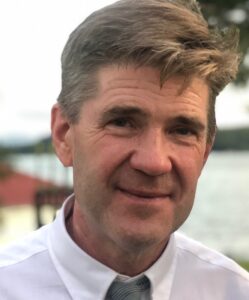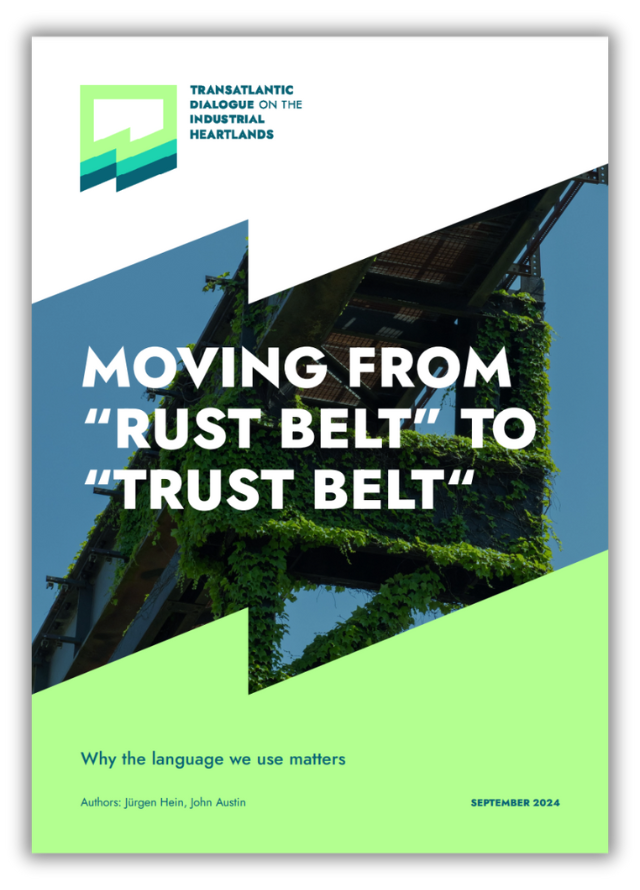Authors: John Austin and Jürgen Hein
Why should we use the term “industrial heartlands” rather “rust belt” when we speak about former industrial regions in the US and Germany? In this paper, authors John Austin and Jürgen Hein discuss why the language we use matters and why without careful communication, anti-democratic and populist sentiments may be fuelled.
The message must be: Yes, there are shortcomings that will have to be taken care of, but let’s at the same time get a process started that will help to prevent such shortcomings from emerging in the first place. Let us use the power of our minds to see what our region can be 30 years from now. We (the residents) are experts in change. Transformation is our specialization. We are pre-prospering, embarking on a journey to success; we are a vivid region of confidence, an asset for ourselves and the state. Instead of your “Rust Belt” we are your “Trust Belt”.
About the Authors

John Austin is a Senior Fellow with the Eisenhower Institute at Gettysburg College (EI), leading EI’s work promoting ideas and network-building to spread economic opportunity and strengthen democracies across the globe. He also serves as a Non-Resident Senior Fellow with the Brookings Institution where for over twenty years he has led efforts to support economic transformation in the American Midwest and in the industrial heartlands of Western democracies. Mr. Austin is also an Affiliated Faculty with the University of Michigan Marsal School of Education. Previously he served 16 years as a state-wide elected official on the Michigan State Board of Education, including as the Board’s President for six years. Austin received his Master’s in Public Administration from Harvard’s Kennedy School of Government, and a Bachelors from Swarthmore College in Economics & Political Science, with High Honors and Phi Beta
Kappa.

Jürgen Hein currently works as Managing Director of the Research Alliance Ruhr which began setting up four Research Centers and a College in 2022. It’s a cooperation of the three universities in the Ruhr area – Ruhr University Bochum, TU Dortmund University and the University of Duisburg-Essen. The research centers are addressing major issues of our time, such as health, sustainability, digitalization and energy, while the college’s main goal is to enable international networking in the field of humanities and social sciences. Up to 50 new research professorships will be established in the founding years until 2025. The Research Alliance Ruhr has been facilitated by the Ruhr Conference, an initiative of the state government of North Rhine-Westphalia to add to the Ruhr area’s transformation. Before joining the Research Alliance, Mr. Hein headed the Ruhr Conference and the department for European and International Affairs and Media in the State Chancellery of North Rhine-Westphalia. Until 2015 Mr. Hein worked as a journalist for the German news agency dpa. One of his positions was that of Chief South Asia Correspondent in New Delhi, India. He received a master’s degree from Cologne and Bonn universities in cultural anthropology, psychology and history of religion.




